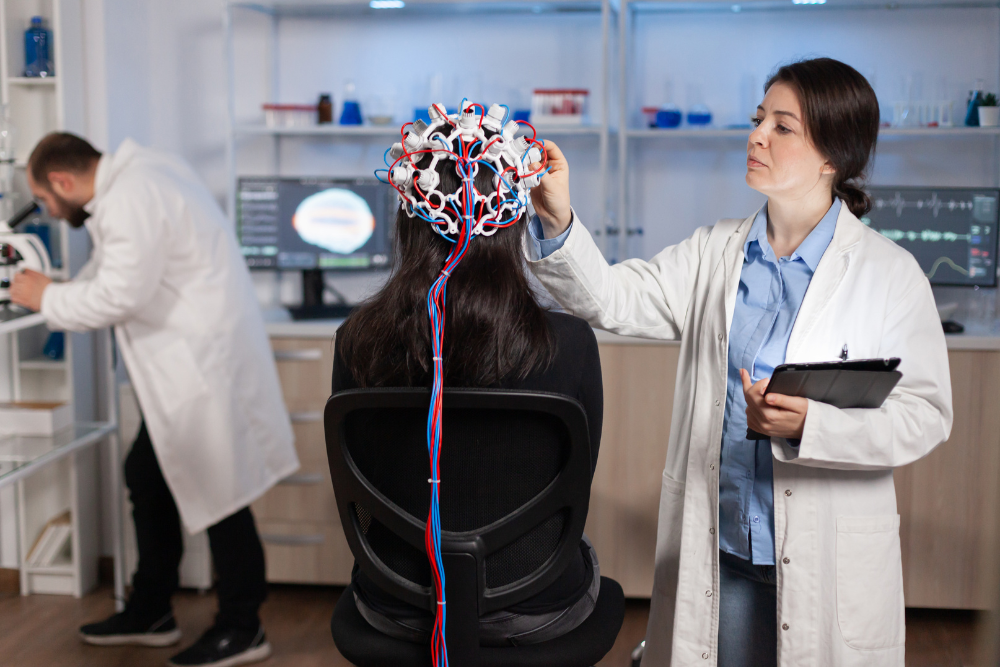Overview
Sports medicine is a specialised field of healthcare dedicated to the prevention, diagnosis, treatment, and rehabilitation of injuries related to physical activity and sports. Athletes of all levels, from amateurs to professionals, often rely on sports medicine specialists to keep them at the peak of their physical performance and to assist in their recovery from injuries. This field encompasses a wide range of services, from managing acute injuries to enhancing overall athletic performance.
Common Sports-Related Injuries
- Muscle Strains: Overstretching or tearing of the muscle fibers can result in strains. These injuries often occur in the hamstrings, quadriceps, and calf muscles.
- Ligament Sprains: Ligaments connect bone to bone and can be sprained when subjected to excessive stress or twisting. Ankle and knee ligament sprains are common in sports.
- Fractures: Broken bones can occur in sports where there is a high risk of impact, such as football or martial arts.
- Tendon Injuries: Tendons connect muscles to bones and can become inflamed or torn, leading to conditions like tendonitis or tendon tears.
- Overuse Injuries: Repetitive movements can lead to overuse injuries like stress fractures, shin splints, or tennis elbow.
- Concussions: In contact sports, head injuries are a significant concern, and concussions require prompt evaluation and management.
Treatment and Care
- Injury Evaluation and Diagnosis: Sports medicine professionals assess and diagnose sports-related injuries, including sprains, strains, fractures, and joint injuries. Advanced diagnostic tools like MRI and X-ray may be employed to accurately evaluate the extent of the injury.
- Immediate Injury Management: For acute injuries, such as on-field injuries, immediate care and first aid are provided to minimize damage and pain. The RICE protocol (Rest, Ice, Compression, Elevation) is often used to manage swelling and discomfort.
- Physiotherapy: Customized rehabilitation programs are designed to facilitate recovery from sports injuries, improve mobility, and restore strength. Physiotherapists employ exercises, manual therapy, and modalities to enhance the healing process.
- Orthopedic Care: Orthopedic surgeons specialize in the treatment of musculoskeletal injuries and may perform surgical interventions when required. Sports medicine experts work with athletes to optimize their performance through training regimens, nutrition plans, and biomechanical assessments.
- Injury Prevention: Preventive strategies, including the identification of risk factors, proper warm-ups, and protective gear, help reduce the likelihood of injuries.
- Concussion Management: Experts in sports medicine are trained to evaluate and manage concussions, ensuring the safety and well-being of athletes.
- Sports Nutrition: Nutritionists provide guidance on dietary plans and supplements to support athletes' energy, strength, and recovery.
- Hydration and Heat-Related Issues: Education on proper hydration and prevention of heat-related conditions, such as heat exhaustion and heat stroke, is an integral part of sports medicine.
- Sports Psychology: Sports psychologists work with athletes to enhance their mental resilience, focus, and coping skills, crucial for performance and mental well-being.
When to Consult a Doctor ?
Seek the expertise of a sports medicine doctor in various situations, especially if you are actively engaged in sports or physical activities. These specialists are trained to address both the prevention and treatment of sports-related injuries and conditions. Here are some instances when it's appropriate to consult a sports medicine doctor:
- Sports-Related Injuries: If you sustain an injury while participating in sports or physical activities, a sports medicine doctor can provide a prompt and accurate diagnosis, along with a customized treatment plan for your specific injury.
- Chronic or Recurring Pain: Persistent pain in joints, muscles, or soft tissues, especially when it hinders your performance or daily activities, should prompt a visit to a sports medicine specialist.
- Overuse Injuries: Athletes who engage in repetitive motions, such as runners, cyclists, and swimmers, may develop overuse injuries. These specialists can diagnose and treat such injuries and recommend changes to prevent them from recurring.
- Concussions: If you experience a head injury or concussion during sports or recreational activities, a sports medicine doctor can assess and manage the condition, ensuring a safe return to play.
Call +91 98412 98412 for medical emergencies or 044 2238 2248 / +91 98848 99091 to book an appointment.
General (FAQ) For Sports Medicine
A sports medicine specialist is a healthcare professional, often a physician, who has undergone additional training in sports medicine. They focus on addressing the unique medical needs of athletes, active individuals, and those involved in physical fitness.
















